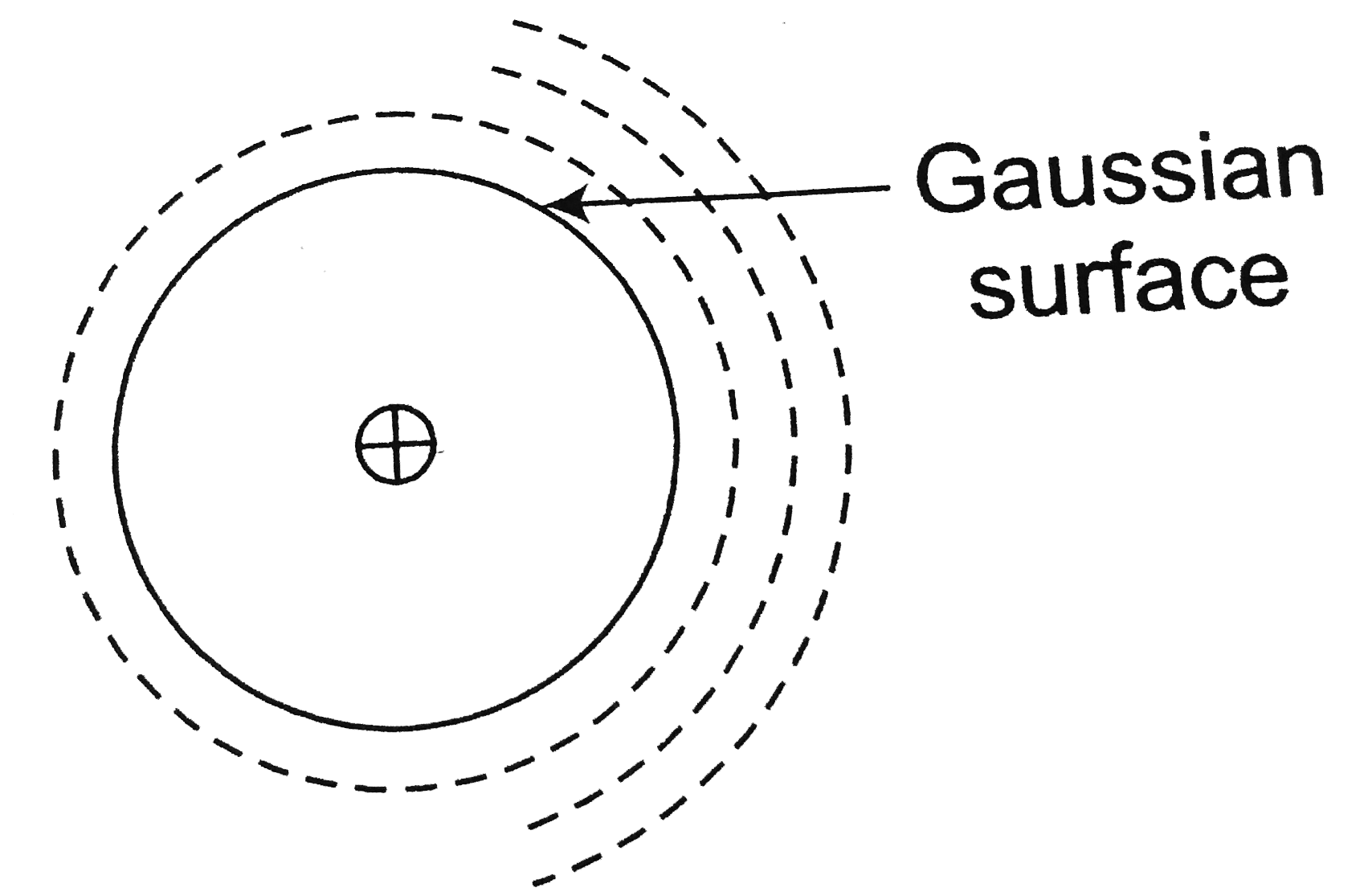A charge q is enclosed by an imaginary Gaussian surface.

If radius of surface is increasing at a rate drdt=K, then
flux linked with surface is increasing at a rate dϕdt=K
flux linked with surface is decreasing at a rate dϕdt=−K
flux linked with surface is decreasing at a rate dϕdt=1K
flux linked with surface is qε0
The correct Answer is:d
From the Gauss, law ϕ=qenclosedε0
in which qenclosed is the net charge inside an imaginary closed surface (a Gsussian surface) flux does not depend on the radius of imaginary enclosed surface.
Topper's Solved these Questions
- ELECTRIC CHARGE, FIELD & FLUXBOOK - A2ZCHAPTER - ELECTRIC CHARGE, FIELD & FLUXEXERCISE - Electric Dipole
29 Videos
- ELECTRIC CHARGE, FIELD & FLUXBOOK - A2ZCHAPTER - ELECTRIC CHARGE, FIELD & FLUXEXERCISE - Problems Based On Mixed Concepts
40 Videos
- ELECTRIC CHARGE, FIELD & FLUXBOOK - A2ZCHAPTER - ELECTRIC CHARGE, FIELD & FLUXEXERCISE - Electric Field And Motion
37 Videos
- DUAL NATURE OF RADIATION AND MATTERBOOK - A2ZCHAPTER - DUAL NATURE OF RADIATION AND MATTEREXERCISE - Section D - Chapter End Test
30 Videos
- ELECTRIC POTENTIAL & CAPACITANCEBOOK - A2ZCHAPTER - ELECTRIC POTENTIAL & CAPACITANCEEXERCISE - Section D - Chapter End Test
29 Videos
Similar Questions
Knowledge Check
A wavefront is an imaginary surface where
Aphase is same for all pointsBphase changes at constant rate at all points along the surface.Cconstant phase differece continuously changes between the pointsDphase changes all over the surfaceA charge Q is enclosed by a Gaussian spherical surface of radius R, If the radius is doubled, then the outward electric flux will
Abe reduced to halfBremains the sameCbe doubledDincreases four timesA charge Q is enclosed by a Gaussian spherical surface of radius R. If the radius is doubled, then the outward electric flux will
Abe reduced to halfBremain the sameCbe doubledDincrease four times
Slection Of Gaussian Surface
View SolutionA charge Q is enclosed by a spherical Gaussian surface of radius R. If the radius of the sphere is double, how will the outward electric flux charge ? If a charge −Q is brought outside the Gaussian surface, will the electric flux reduce to zero ?
View SolutionSelection Of Gaussian Surface
View SolutionA charge Q is enclosed by a Gaussian surface. If surface area is doubled and charge Q is tripled then the outward electric flux will
View SolutionHow does the electric flux due to a point charge enclosed by a spherical Gaussian surface get a affected when its radius is increased ?
View Solution